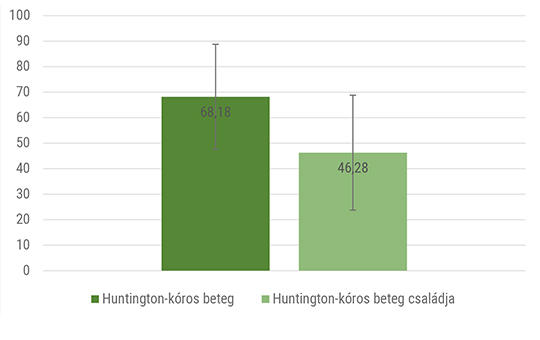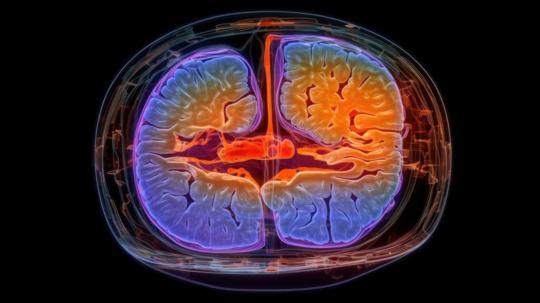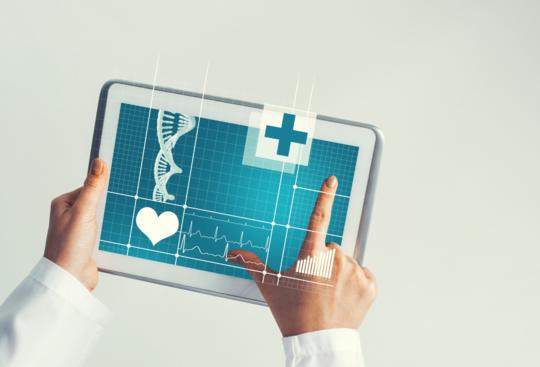The eLitMed.hu medical portal uses computer cookies for convenient operation. Detailed information can be found in the Cookie-policy.
Specialities
Neurology
[Gynaecological hormone therapy and cardiovascular risk. Part 2: menopausal hormone therapy ]
[Concerning cardiovascular (CV) risk, beside hormonal contraception, menopausal hormone therapy (MHT) has a pre-eminent clinical significance. If women start MHT younger than 60 years of age, or within 10 years after their menopausal transition, the risk of coronary diseases and mortality too decreases. Conventional oral MHT slightly increases the risk of venous thromboembolism (VTE) and stroke, while transdermal admission does not it. MHT initiated in women above 60, raise the risk of cardiovascular (CV) diseases, thus it is useful to start MHT at the onset of menopause syndrome signs (primarily hot flashes), preferably at a younger age. Preventing serious late complications to start and continue MHT at least until natural menopause is essential in premature ovarian insufficiency and early menopause. Below, we summarize the CV implications of MHT and its alternative treatment options.]
[Analysis of the Quality of Life Patients With Huntington’s Disease and Their Families In Hungary]
[The aim of the research study was to get a better picture of the patient’s quality of life with Huntington’s disease and their caretaker’s. One of the main topics of the investigation was the family, because taking care of a Huntington’s patient can have a big impact on their lives. Our further concern was to introduce the concept for the families and test their open mindedness, if they would take assistance from nurse graduates to make the patient’s medical journey shorter and help with their everyday life challenges.
The cross-sectional research was done by validated tests, as well as, self-made tests which contained socio-demographic data and questions regarding the disease. The trial took place at Semmelweis University, at the Institute of Genomic Medicine and Rare Disorders in collaboration with the patients and their families.
According to the patients, their life quality is affected more physically than their mental health. The experiment showed that the disease has a big impact on the quality of life of the family members. The family members would be more open in regards to accepting help from advanced practice nurses.
Huntington’s disease has a negative impact on the quality of life of the patients and their families. It would be adequate to study if the provided help of advanced practice nurses could improve their quality of life. ]
[Gynaecological hormone therapy and the cardiovascular risk. Part 1: hormonal contraception]
[Preventing unwanted pregnancy, and in treating many gynaecological diseases, we use hormones produced by the ovaries, namely the follicle hormone and the corpus luteum hormone, or their synthetic versions. In terms of hormonal therapies, combined oral hormonal contraception and menopausal hormone therapy are of outstanding importance. Some pharmaceuticals do not increase the cardiovascular (CV) risk, while others do it by increasing the risk of coronary diseases (primarily myocardial infarction), venous thromboembolism, and ischaemic and haemorrhagic strokes respectively. This review of concerning literature summarized the cardiovascular impact of hormonal therapies in gynaecologic practice, in two parts. The first part discusses hormonal contraception, the second one the menopausal hormone therapy.
Combined hormonal contraceptives (COC) containing follicle hormone and progestogen significantly increase the risk of venous thromboembolism (VTE), however without any major clinical significance. The higher risk perceived among smoking, overweight and older women is additionally burdened by COC. Nevertheless, products containing estetrol and progesterone-only-pills do not increase the CV risk. Using COC does not increase the risk of haemorrhagic stroke, but does it slightly that of ischaemic stroke and myocardial infarction. CV side effects of hormonal ACs are not significant from a clinical point of view and are far below the complications caused by unwanted pregnancies due to the use of improper contraception. This study summarized the literature data on CV risk of hormonal contraceptives. ]
[Female specific differences of ischemic stroke and cerebral venous thrombosis]
[There are female-specific characteristics also in epidemiology, emerging risk factors, acute reperfusion therapy and outcome of cerebrovascular disorders. Among classical risk factors, as hypertension, atrial fibrillation, diabetes and obesity the risk of stroke is higher in females than males. Recognizing female specific risk factors is indispensable not only in therapeutic but also in preventive measures. Pregnancy and puerperium increase the prothrombotic state which results in a significantly higher incidence of ischemic stroke and cerebral venous thrombosis respectively. The treatment of acute stroke in pregnancy and puerperium is a great challenge since the concerning guidelines providing hardly any conduct in such cases. After menopause, there is change in prevalence and severity of cardiovascular risk factors and as a result, the stroke incidence is higher among females than males over the age of 80. Additionally, there are evidence based sex differences in the stroke outcomes. This review aims to improve the stroke care quality by presenting characteristic sex differences in this summary. ]
[Digitalization in healthcare: usage habits, attitudes and needs of patients and doctors over 65 concerning digital health in Hungary]
[The development of digital health has accelerated significantly in recent years, but often the most vulnerable groups, including the elderly, are missing out on the most advanced digital technologies.
In our exploratory research, a national, representative questionnaire-based patient survey of the adult Hungarian population was conducted in autumn 2021 (N=1723), 428 respondents were aged 65+. Out of the 1576 GPs completing the online survey of doctors working in Hungary between July 2021 and May 2022, 435 were aged 65+. The data were analysed descriptively and by cluster analysis.
While the likelihood of patients using the internet decreases with age, doctors over 65 years of age are significant daily users (88.5%). More than a third of older doctors (37.2%) and half of younger doctors (50.3%) are more likely to support their patients’ use of the internet for health purposes. Educational attainment is a determining factor in patients’ use of digital technologies. Virtually all of the elderly who use the internet have heard of digital health solutions and nearly 70% have used at least one type of digital communication, administration or device solution.
Although elderly patients are disadvantaged in their use of digital tools, their openness to the future is encouraging: 70% of them would like to try digital technologies. Older doctors are also open to new solutions, and although they are more cautious about the benefits of digital health, there is no age gap in terms of disadvantages.]
[The role of brain neural networks in the developing dementia: our research methods from optogenetics to artificial intelligence]
[In the Laboratory of Systems Neuroscience of the Institute of Experimental Medicine, our main objective is the better understanding of the brain mechanisms of cognitive functions. We investigate the nervous system basis of learning, memory, attention and decision-making not only in normal conditions but also in pathological ones, especially concerning the neurodegenerative dementias such as Alzheimer’s and Parkinson’s disease.
Our main profile is conducting animal studies, but we carry out human research too in collaboration with clinical partners. We analyse multichannel, i.e. multidimensional electrophysiological signals using both classical and modern statistical methods and new and powerful machine learning algorithms.
This study presents the activity of our team, while focusing on artificial intelligence applications.
]
1.
Clinical Neuroscience
[Headache registry in Szeged: Experiences regarding to migraine patients]2.
Clinical Neuroscience
[The new target population of stroke awareness campaign: Kindergarten students ]3.
Clinical Neuroscience
Is there any difference in mortality rates of atrial fibrillation detected before or after ischemic stroke?4.
Clinical Neuroscience
Factors influencing the level of stigma in Parkinson’s disease in western Turkey5.
Clinical Neuroscience
[The effects of demographic and clinical factors on the severity of poststroke aphasia]1.
2.
Clinical Oncology
[Pancreatic cancer: ESMO Clinical Practice Guideline for diagnosis, treatment and follow-up]3.
Clinical Oncology
[Pharmacovigilance landscape – Lessons from the past and opportunities for future]4.
5.









